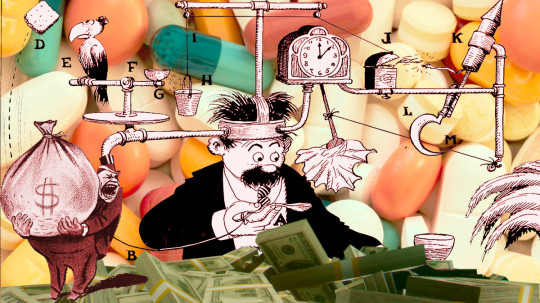#sept 2017
Explore tagged Tumblr posts
Text
"I'm a complex man," he'd say. But what I think he really meant was that he’s just a wounded asshole.
40 notes
·
View notes
Text



happy new year!
#lin manuel miranda#linmanuelmiranda#hamilton#hamilton musical#in the heights#sept 2017#13.09.2017#linmirandacom
45 notes
·
View notes
Text
Never try to unearth the past–you could fall into the grave by mistake
0 notes
Text

Cinq à Sept Fall 2017
#runway#runway fashion#fashion#fashion week#rtw#ready to wear#alternative#alternative style#alternative fashion#grunge#grunge style#grunge fashion#cinq a sept#fall 2017
35 notes
·
View notes
Text
I MEAN LOOK AT THIS PLACE WHO WANTS TO LIVE IN A PLACE THIS NONDESCRIPT
*puts up death note poster*
Don’t judge me
#source: one of will’s facebook posts from sept 26 2017#it’s on yt as ‘’i never stop being amazed by how far we’ve come in the past two years thanks to you creeps. ‘’#will wood out of context#will wood#wee woo#will wood and the tapeworms#wwatt
22 notes
·
View notes
Note
sorry if i've missed this and you've already found/posted about this, but do you know where dan's top is from in "what dan and phil text each other 2021"?

here you go!!
#asks#dan#dan: jumpers#just a note for anyone reading this everything ive posted on here is from post sept 2022#for anything earlier its all on my twitter @phanoutfits#i didnt see the point in cross posting clothes from 2017 when there would be no active links to buy them
15 notes
·
View notes
Text
the way you can actually SEE the moment i started doing completely lowercase fic titles sdgsdgsg

#kitchen shenanigans being the ONLY uppercase title* but ONLY because it was part of a series that had all uppercase titles#* after sept 2017#waiting on the world was posted in sept 2017 and then running from my heart wasn't until feb 2018#somewhere in there was the day the uppercase titles died#anyway i only have 6 more to put in the Big Document#that is all of the yoi oneshots#and then!!! we'll see how many pages it is and try to figure out a bit more formatting shit#specifically margins and printing them right#thankfully i have a video for that sdgdg#and maybe we'll get close enough to start figuring out the cover a bit :')))#i might do a rebind cover and just find an old book to repurpose......#but that still requires having some idea of how thick the book needs to be#shh ac
8 notes
·
View notes
Photo

















Jungkook cantando canciones de Jimin - Lie - Promise - Serendipity - Filter - Christmas Love - With you - Vibe feat Jimin - Angel Pt.1 FastX
☼˖☽ ☼˖☽ ☼˖☽ ☼˖☽ ☼˖☽ ☼˖☽ ☼˖☽
Jungkook Vlive 2017.04.22. 꾸기 라이브🐰🐇 - Lie
☼˖☽ ☼˖☽ ☼˖☽ ☼˖☽ ☼˖☽ ☼˖☽ ☼˖☽
BTS_twt 30 ene. 2019 - Promise by Jimin
그리고 지민씨도 피해갈 수 없습니다.
Y Jimin tampoco puede escapar
☼˖☽ ☼˖☽ ☼˖☽ ☼˖☽ ☼˖☽ ☼˖☽ ☼˖☽
-BTS ‘LOVE YOURSELF 承 Her’ Fansign ( Aladin Event) 22 Sept 2017 Jimin and Jungkook-Serendipity
-MCountdown jimin y jungkook - Serendipity
☼˖☽ ☼˖☽ ☼˖☽ ☼˖☽ ☼˖☽ ☼˖☽ ☼˖☽
- BTS (방탄소년단) 'BREAK THE SILENCE: THE MOVIE COMMENTARY PACKAGE' (Commentary ver.) 2021 - Serendipity
☼˖☽ ☼˖☽ ☼˖☽ ☼˖☽ ☼˖☽ ☼˖☽ ☼˖☽
-HAPPYJINDAY Vlive 4 Dic 2020 llamada con jimin y estaba con jungkook - serendipity(04122020- jin vlive llamada a jikookkookmin que iban a casa)
☼˖☽ ☼˖☽ ☼˖☽ ☼˖☽ ☼˖☽ ☼˖☽ ☼˖☽
-InTheSoop2 Ep.2 2021 Jungkook - Serendipity
☼˖☽ ☼˖☽ ☼˖☽ ☼˖☽ ☼˖☽ ☼˖☽ ☼˖☽
-Bts world tour love yourself speak yourself the final dvd 2019 - Serendipity
☼˖☽ ☼˖☽ ☼˖☽ ☼˖☽ ☼˖☽ ☼˖☽ ☼˖☽
-2022 SEASONS GREETINGS JK estilo-Serendipity
☼˖☽ ☼˖☽ ☼˖☽ ☼˖☽ ☼˖☽ ☼˖☽ ☼˖☽
JK💜 Vlive 7 marzo 2021 - Filter
☼˖☽ ☼˖☽ ☼˖☽ ☼˖☽ ☼˖☽ ☼˖☽ ☼˖☽
[BANGTAN BOMB] 2021 FESTA Exam Behind the Scenes - BTS (방탄소년단) - Christmas Love by Jimin - Sobok, sobok 16:35min
https://youtu.be/QlAPYyVue-g?t=995
☼˖☽ ☼˖☽ ☼˖☽ ☼˖☽ ☼˖☽ ☼˖☽ ☼˖☽
[BTS VLOG] Jung Kook l CAMPING VLOG 2022 - With you 15:28min
https://youtu.be/4M5jGbVfItE?t=928
☼˖☽ ☼˖☽ ☼˖☽ ☼˖☽ ☼˖☽ ☼˖☽ ☼˖☽
Jungkook weverse live 1 febrero 2023 - Vibe feat Jimin 22:40min
잘 지내셨습니까 - Have You Been Well - ¿Has estado bien?
https://weverse.io/bts/live/2-113198481
☼˖☽ ☼˖☽ ☼˖☽ ☼˖☽ ☼˖☽ ☼˖☽ ☼˖☽
jungkook weverse live cantando set me free pt.2 - cantando-tarareando like crazy del primer álbum de jimin face
JK
BTS
03.27. 11:53
슈취타
Suchwita
https://weverse.io/bts/live/3-115956451?hl=en
☼˖☽ ☼˖☽ ☼˖☽ ☼˖☽ ☼˖☽ ☼˖☽ ☼˖☽
el nos dio pistas en sus weverse lives y ni uno ni en-cuenta T T
JK
BTS
03.23. 13:06
배고파요 ... 첫끼 ... 불금 ...
Tengo hambre... primera comida... viernes (tgif)
https://weverse.io/bts/live/3-115684831?hl=en
☼˖☽ ☼˖☽ ☼˖☽ ☼˖☽ ☼˖☽ ☼˖☽ ☼˖☽
jungkook weverse live 24 Mayo 2023 - Angel Pt.1 FastX
Knock Knock - Toc Toc
https://weverse.io/bts/live/1-119598161
#jikook#kookmin#jimin#jungkook#park jimin#jeon jungkook#jiminshiii#galletita#jungkook vlive#bts vlive jungkook#jungkook weverse live#amor a mis chicos JMJK#jungkook hizo weverse live y todo era dedicado a jimin en suchwita sus vídeos T T#Jungkook cantando canciones de Jimin Lie Promise Serendipity Filter Christmas Love With you Vibe Like Crazy Set Me Free Pt.2 Letter AngelPt1#jk a jm y jimin tampoco puede escapar#jungkook bts twt 그리고 지민���도 피해갈 수 없습니다.#jungkook vlive 2017.04.22. 꾸기 라이브🐰🐇#BTS ‘LOVE YOURSELF 承 Her’ Fansign ( Aladin Event) 22 Sept 2017#MCountdown jimin y jungkook - Serendipity#bts (방탄소년단) 'break the silence: the movie commentary package' (commentary ver.)#HAPPYJINDAY Vlive 4 Dic 2020 llamada con jimin y estaba con jungkook#04122020-jin vlive llamada a jikookkookmin que iban a casa#bts in the soop 2 ep.2 formas de estar en un viaje#bts in the soop 2#bts world tour love yourself speak yourself the final dvd#2022 seasons greetings#JK💜 Vlive 7 marzo 2021 -#2021 festa exam behind the scenes#[BANGTAN BOMB] 2021 FESTA Exam Behind the Scenes - BTS (방탄소년단)#BTS VLOG Jung Kook l CAMPING VLOG
16 notes
·
View notes
Note
why is it lesbianlenas and not bisexuallenas
didn’t she love kara’s ex boyfriend james?
first of all ive had this url since before s3 of sg even started lmfao. second of all no bc they only did that plot line bc they hated that lesbians loved lena and were calling her a lesbian. that’s why they added jack in 2x18 and when that did nothing they did the romance w james too. the only reason lena was ever w a man is bc the sg writers were homophobic & i will never let go of lena being a lesbian ever. & kara is also a lesbian too it’s in the narrative btw ❤️
#lena is literally a lesbian in a homophobic tv show. and i will not let them win.#i have been lesbianlenas since sept 2017 btw. u don’t even know what ive been thru……#and i was blogging abt sg before i even changed my url to that. i have been here since jan 2017 😭 before JACK even 😭#anonymous#ask //
6 notes
·
View notes
Text
losing my mind. that ask i mentioned was from like mid-2020 or smth & my proship twt was made in late-2020. mere months later. lmao.

#me: 'pro-ship'? gross.. y.yeah.. [runs to twt] Brocon Save Me..#unless sept was just when i saved the urI for this twt? like 1 of my twts says 'joined 2018' or smth (2017? 2019?) but thats#bc it was a saved urI & i only utilized it a few weeks ago lol#overgrowth.text
1 note
·
View note
Text







#lin manuel miranda#linmanuelmiranda#hamilton#hamilton musical#in the heights#linmirandacom#sept 2017#13.09.2017
32 notes
·
View notes
Text
album review; psy's 4x2=8
☆ 7/10
♡ released in may 2017
♡ k-pop
Who doesn’t love fun (minus three tracks)? Such a fun album, if I wasn’t dancing i was bopping my head, etc., etc. The perfect album to put on to pregame, or get the crowd in a better mood 😊😊😊
A song by song review can be found underneath the cut. My favorite tracks are I Luv It, New Face, and Rock Will Never Die. My least favorite track is Place to Lean On / Refuge.
I Luv It -> 10/10
New Face -> 10/10
Last Scene -> 4/10
Love -> 8/10
Bomb -> 8/10
We Are Young -> 5/10
Fact Assault -> 8/10
Rock Will Never Die -> 10/10
Place to Lean On / Refuge -> 3/10
Auto Reverse -> 4/10
0 notes
Note
they have a point though. you wouldn't need everyone to accommodate you if you just lost weight, but you're too lazy to stick to a healthy diet and exercise. it's that simple. I'd like to see you back up your claims, but you have no proof. you have got to stop lying to yourselves and face the facts
Must I go through this again? Fine. FINE. You guys are working my nerves today. You want to talk about facing the facts? Let's face the fucking facts.
In 2022, the US market cap of the weight loss industry was $75 billion [1, 3]. In 2021, the global market cap of the weight loss industry was estimated at $224.27 billion [2].
In 2020, the market shrunk by about 25%, but rebounded and then some since then [1, 3] By 2030, the global weight loss industry is expected to be valued at $405.4 billion [2]. If diets really worked, this industry would fall overnight.
1. LaRosa, J. March 10, 2022. "U.S. Weight Loss Market Shrinks by 25% in 2020 with Pandemic, but Rebounds in 2021." Market Research Blog. 2. Staff. February 09, 2023. "[Latest] Global Weight Loss and Weight Management Market Size/Share Worth." Facts and Factors Research. 3. LaRosa, J. March 27, 2023. "U.S. Weight Loss Market Partially Recovers from the Pandemic." Market Research Blog.
Over 50 years of research conclusively demonstrates that virtually everyone who intentionally loses weight by manipulating their eating and exercise habits will regain the weight they lost within 3-5 years. And 75% will actually regain more weight than they lost [4].
4. Mann, T., Tomiyama, A.J., Westling, E., Lew, A.M., Samuels, B., Chatman, J. (2007). "Medicare’s Search For Effective Obesity Treatments: Diets Are Not The Answer." The American Psychologist, 62, 220-233. U.S. National Library of Medicine, Apr. 2007.
The annual odds of a fat person attaining a so-called “normal” weight and maintaining that for 5 years is approximately 1 in 1000 [5].
5. Fildes, A., Charlton, J., Rudisill, C., Littlejohns, P., Prevost, A.T., & Gulliford, M.C. (2015). “Probability of an Obese Person Attaining Normal Body Weight: Cohort Study Using Electronic Health Records.” American Journal of Public Health, July 16, 2015: e1–e6.
Doctors became so desperate that they resorted to amputating parts of the digestive tract (bariatric surgery) in the hopes that it might finally result in long-term weight-loss. Except that doesn’t work either. [6] And it turns out it causes death [7], addiction [8], malnutrition [9], and suicide [7].
6. Magro, Daniéla Oliviera, et al. “Long-Term Weight Regain after Gastric Bypass: A 5-Year Prospective Study - Obesity Surgery.” SpringerLink, 8 Apr. 2008. 7. Omalu, Bennet I, et al. “Death Rates and Causes of Death After Bariatric Surgery for Pennsylvania Residents, 1995 to 2004.” Jama Network, 1 Oct. 2007. 8. King, Wendy C., et al. “Prevalence of Alcohol Use Disorders Before and After Bariatric Surgery.” Jama Network, 20 June 2012. 9. Gletsu-Miller, Nana, and Breanne N. Wright. “Mineral Malnutrition Following Bariatric Surgery.” Advances In Nutrition: An International Review Journal, Sept. 2013.
Evidence suggests that repeatedly losing and gaining weight is linked to cardiovascular disease, stroke, diabetes and altered immune function [10].
10. Tomiyama, A Janet, et al. “Long‐term Effects of Dieting: Is Weight Loss Related to Health?” Social and Personality Psychology Compass, 6 July 2017.
Prescribed weight loss is the leading predictor of eating disorders [11].
11. Patton, GC, et al. “Onset of Adolescent Eating Disorders: Population Based Cohort Study over 3 Years.” BMJ (Clinical Research Ed.), 20 Mar. 1999.
The idea that “obesity” is unhealthy and can cause or exacerbate illnesses is a biased misrepresentation of the scientific literature that is informed more by bigotry than credible science [12].
12. Medvedyuk, Stella, et al. “Ideology, Obesity and the Social Determinants of Health: A Critical Analysis of the Obesity and Health Relationship” Taylor & Francis Online, 7 June 2017.
“Obesity” has no proven causative role in the onset of any chronic condition [13, 14] and its appearance may be a protective response to the onset of numerous chronic conditions generated from currently unknown causes [15, 16, 17, 18].
13. Kahn, BB, and JS Flier. “Obesity and Insulin Resistance.” The Journal of Clinical Investigation, Aug. 2000. 14. Cofield, Stacey S, et al. “Use of Causal Language in Observational Studies of Obesity and Nutrition.” Obesity Facts, 3 Dec. 2010. 15. Lavie, Carl J, et al. “Obesity and Cardiovascular Disease: Risk Factor, Paradox, and Impact of Weight Loss.” Journal of the American College of Cardiology, 26 May 2009. 16. Uretsky, Seth, et al. “Obesity Paradox in Patients with Hypertension and Coronary Artery Disease.” The American Journal of Medicine, Oct. 2007. 17. Mullen, John T, et al. “The Obesity Paradox: Body Mass Index and Outcomes in Patients Undergoing Nonbariatric General Surgery.” Annals of Surgery, July 2005. 18. Tseng, Chin-Hsiao. “Obesity Paradox: Differential Effects on Cancer and Noncancer Mortality in Patients with Type 2 Diabetes Mellitus.” Atherosclerosis, Jan. 2013.
Fatness was associated with only 1/3 the associated deaths that previous research estimated and being “overweight” conferred no increased risk at all, and may even be a protective factor against all-causes mortality relative to lower weight categories [19].
19. Flegal, Katherine M. “The Obesity Wars and the Education of a Researcher: A Personal Account.” Progress in Cardiovascular Diseases, 15 June 2021.
Studies have observed that about 30% of so-called “normal weight” people are “unhealthy” whereas about 50% of so-called “overweight” people are “healthy”. Thus, using the BMI as an indicator of health results in the misclassification of some 75 million people in the United States alone [20].
20. Rey-López, JP, et al. “The Prevalence of Metabolically Healthy Obesity: A Systematic Review and Critical Evaluation of the Definitions Used.” Obesity Reviews : An Official Journal of the International Association for the Study of Obesity, 15 Oct. 2014.
While epidemiologists use BMI to calculate national obesity rates (nearly 35% for adults and 18% for kids), the distinctions can be arbitrary. In 1998, the National Institutes of Health lowered the overweight threshold from 27.8 to 25—branding roughly 29 million Americans as fat overnight—to match international guidelines. But critics noted that those guidelines were drafted in part by the International Obesity Task Force, whose two principal funders were companies making weight loss drugs [21].
21. Butler, Kiera. “Why BMI Is a Big Fat Scam.” Mother Jones, 25 Aug. 2014.
Body size is largely determined by genetics [22].
22. Wardle, J. Carnell, C. Haworth, R. Plomin. “Evidence for a strong genetic influence on childhood adiposity despite the force of the obesogenic environment” American Journal of Clinical Nutrition Vol. 87, No. 2, Pages 398-404, February 2008.
Healthy lifestyle habits are associated with a significant decrease in mortality regardless of baseline body mass index [23].
23. Matheson, Eric M, et al. “Healthy Lifestyle Habits and Mortality in Overweight and Obese Individuals.” Journal of the American Board of Family Medicine : JABFM, U.S. National Library of Medicine, 25 Feb. 2012.
Weight stigma itself is deadly. Research shows that weight-based discrimination increases risk of death by 60% [24].
24. Sutin, Angela R., et al. “Weight Discrimination and Risk of Mortality .” Association for Psychological Science, 25 Sept. 2015.
Fat stigma in the medical establishment [25] and society at large arguably [26] kills more fat people than fat does [27, 28, 29].
25. Puhl, Rebecca, and Kelly D. Bronwell. “Bias, Discrimination, and Obesity.” Obesity Research, 6 Sept. 2012. 26. Engber, Daniel. “Glutton Intolerance: What If a War on Obesity Only Makes the Problem Worse?” Slate, 5 Oct. 2009. 27. Teachman, B. A., Gapinski, K. D., Brownell, K. D., Rawlins, M., & Jeyaram, S. (2003). Demonstrations of implicit anti-fat bias: The impact of providing causal information and evoking empathy. Health Psychology, 22(1), 68–78. 28. Chastain, Ragen. “So My Doctor Tried to Kill Me.” Dances With Fat, 15 Dec. 2009. 29. Sutin, Angelina R, Yannick Stephan, and Antonio Terraciano. “Weight Discrimination and Risk of Mortality.” Psychological Science, 26 Nov. 2015.
There's my "proof." Where is yours?
#inbox#fat liberation#fat acceptance#fat activism#anti fatness#anti fat bias#anti diet#resources#facts#weight science#save
11K notes
·
View notes
Text
What the fuck is a PBM?

TOMORROW (Sept 24), I'll be speaking IN PERSON at the BOSTON PUBLIC LIBRARY!

Terminal-stage capitalism owes its long senescence to its many defensive mechanisms, and it's only by defeating these that we can put it out of its misery. "The Shield of Boringness" is one of the necrocapitalist's most effective defenses, so it behooves us to attack it head-on.
The Shield of Boringness is Dana Claire's extremely useful term for anything so dull that you simply can't hold any conception of it in your mind for any length of time. In the finance sector, they call this "MEGO," which stands for "My Eyes Glaze Over," a term of art for financial arrangements made so performatively complex that only the most exquisitely melted brain-geniuses can hope to unravel their spaghetti logic. The rest of us are meant to simply heft those thick, dense prospectuses in two hands, shrug, and assume, "a pile of shit this big must have a pony under it."
MEGO and its Shield of Boringness are key to all of terminal-stage capitalism's stupidest scams. Cloaking obvious swindles in a lot of complex language and Byzantine payment schemes can make them seem respectable just long enough for the scammers to relieve you of all your inconvenient cash and assets, though, eventually, you're bound to notice that something is missing.
If you spent the years leading up to the Great Financial Crisis baffled by "CDOs," "synthetic CDOs," "ARMs" and other swindler nonsense, you experienced the Shield of Boringness. If you bet your house and/or your retirement savings on these things, you experienced MEGO. If, after the bubble popped, you finally came to understand that these "exotic financial instruments" were just scams, you experienced Stein's Law ("anything that can't go forever eventually stops"). If today you no longer remember what a CDO is, you are once again experiencing the Shield of Boringness.
As bad as 2008 was, it wasn't even close to the end of terminal stage capitalism. The market has soldiered on, with complex swindles like carbon offset trading, metaverse, cryptocurrency, financialized solar installation, and (of course) AI. In addition to these new swindles, we're still playing the hits, finding new ways to make the worst scams of the 2000s even worse.
That brings me to the American health industry, and the absurdly complex, ridiculously corrupt Pharmacy Benefit Managers (PBMs), a pathology that has only metastasized since 2008.
On at least 20 separate occasions, I have taken it upon myself to figure out how the PBM swindle works, and nevertheless, every time they come up, I have to go back and figure it out again, because PBMs have the most powerful Shield of Boringness out of the whole Monster Manual of terminal-stage capitalism's trash mobs.
PBMs are back in the news because the FTC is now suing the largest of these for their role in ripping off diabetics with sky-high insulin prices. This has kicked off a fresh round of "what the fuck is a PBM, anyway?" explainers of extremely variable quality. Unsurprisingly, the best of these comes from Matt Stoller:
https://www.thebignewsletter.com/p/monopoly-round-up-lina-khan-pharma
Stoller starts by pointing out that Americans have a proud tradition of getting phucked by pharma companies. As far back as the 1950s, Tennessee Senator Estes Kefauver was holding hearings on the scams that pharma companies were using to ensure that Americans paid more for their pills than virtually anyone else in the world.
But since the 2010s, Americans have found themselves paying eye-popping, sky-high, ridiculous drug prices. Eli Lilly's Humolog insulin sold for $21 in 1999; by 2017, the price was $274 – a 1,200% increase! This isn't your grampa's price gouging!
Where do these absurd prices come from? The story starts in the 2000s, when the GW Bush administration encouraged health insurers to create "high deductible" plans, where patients were expected to pay out of pocket for receiving care, until they hit a multi-thousand-dollar threshold, and then their insurance would kick in. Along with "co-pays" and other junk fees, these deductibles were called "cost sharing," and they were sold as a way to prevent the "abuse" of the health care system.
The economists who crafted terminal-stage capitalism's intellectual rationalizations claimed the reason Americans paid so much more for health care than their socialized-medicine using cousins in the rest of the world had nothing to do with the fact that America treats health as a source of profits, while the rest of the world treats health as a human right.
No, the actual root of America's health industry's problems was the moral defects of Americans. Because insured Americans could just go see the doctor whenever they felt like it, they had no incentive to minimize their use of the system. Any time one of these unhinged hypochondriacs got a little sniffle, they could treat themselves to a doctor's visit, enjoying those waiting-room magazines and the pleasure of arranging a sick day with HR, without bearing any of the true costs:
https://pluralistic.net/2021/06/27/the-doctrine-of-moral-hazard/
"Cost sharing" was supposed to create "skin in the game" for every insured American, creating a little pain-point that stung you every time you thought about treating yourself to a luxurious doctor's visit. Now, these payments bit hardest on the poorest workers, because if you're making minimum wage, at $10 co-pay hurts a lot more than it does if you're making six figures. What's more, VPs and the C-suite were offered "gold-plated" plans with low/no deductibles or co-pays, because executives understand the value of a dollar in the way that mere working slobs can't ever hope to comprehend. They can be trusted to only use the doctor when it's truly warranted.
So now you have these high-deductible plans creeping into every workplace. Then along comes Obama and the Affordable Care Act, a compromise that maintains health care as a for-profit enterprise (still not a human right!) but seeks to create universal coverage by requiring every American to buy a plan, requiring insurers to offer plans to every American, and uses public money to subsidize the for-profit health industry to glue it together.
Predictably, the cheapest insurance offered on the Obamacare exchanges – and ultimately, by employers – had sky-high deductibles and co-pays. That way, insurers could pocket a fat public subsidy, offer an "insurance" plan that was cheap enough for even the most marginally employed people to afford, but still offer no coverage until their customers had spent thousands of dollars out-of-pocket in a given year.
That's the background: GWB created high-deductible plans, Obama supercharged them. Keep that in your mind as we go through the MEGO procedures of the PBM sector.
Your insurer has a list of drugs they'll cover, called the "formulary." The formulary also specifies how much the insurance company is willing to pay your pharmacist for these drugs. Creating the formulary and paying pharmacies for dispensing drugs is a lot of tedious work, and insurance outsources this to third parties, called – wait for it – Pharmacy Benefits Managers.
The prices in the formulary the PBM prepares for your insurance company are called the "list prices." These are meant to represent the "sticker price" of the drug, what a pharmacist would charge you if you wandered in off the street with no insurance, but somehow in possession of a valid prescription.
But, as Stoller writes, these "list prices" aren't actually ever charged to anyone. The list price is like the "full price" on the pricetags at a discount furniture place where everything is always "on sale" at 50% off – and whose semi-disposable sofas and balsa-wood dining room chairs are never actually sold at full price.
One theoretical advantage of a PBM is that it can get lower prices because it bargains for all the people in a given insurer's plan. If you're the pharma giant Sanofi and you want your Lantus insulin to be available to any of the people who must use OptumRX's formulary, you have to convince OptumRX to include you in that formulary.
OptumRX – like all PBMs – demands "rebates" from pharma companies if they want to be included in the formulary. On its face, this is similar to the practices of, say, NICE – the UK agency that bargains for medicine on behalf of the NHS, which also bargains with pharma companies for access to everyone in the UK and gets very good deals as a result.
But OptumRX doesn't bargain for a lower list price. They bargain for a bigger rebate. That means that the "price" is still very high, but OptumRX ends up paying a tiny fraction of it, thanks to that rebate. In the OptumRX formulary, Lantus insulin lists for $403. But Sanofi, who make Lantus, rebate $339 of that to OptumRX, leaving just $64 for Lantus.
Here's where the scam hits. Your insurer charges you a deductible based on the list price – $404 – not on the $64 that OptumRX actually pays for your insulin. If you're in a high-deductible plan and you haven't met your cap yet, you're going to pay $404 for your insulin, even though the actual price for it is $64.
Now, you'd think that your insurer would put a stop to this. They chose the PBM, the PBM is ripping off their customers, so it's their job to smack the PBM around and make it cut this shit out. So why would the insurers tolerate this nonsense?
Here's why: the PBMs are divisions of the big health insurance companies. Unitedhealth owns OptumRx; Aetna owns Caremark, and Cigna owns Expressscripts. So it's not the PBM that's ripping you off, it's your own insurance company. They're not just making you pay for drugs that you're supposedly covered for – they're pocketing the deductible you pay for those drugs.
Now, there's one more entity with power over the PBM that you'd hope would step in on your behalf: your boss. After all, your employer is the entity that actually chooses the insurer and negotiates with them on your behalf. Your boss is in the driver's seat; you're just along for the ride.
It would be pretty funny if the answer to this was that the health insurance company bought your employer, too, and so your boss, the PBM and the insurer were all the same guy, busily swapping hats, paying for a call center full of tormented drones who each have three phones on their desks: one labeled "insurer"; the second, "PBM" and the final one "HR."
But no, the insurers haven't bought out the company you work for (yet). Rather, they've bought off your boss – they're sharing kickbacks with your employer for all the deductibles and co-pays you're being suckered into paying. There's so much money (your money) sloshing around in the PBM scamoverse that anytime someone might get in the way of you being ripped off, they just get cut in for a share of the loot.
That is how the PBM scam works: they're fronts for health insurers who exploit the existence of high-deductible plans in order to get huge kickbacks from pharma makers, and massive fees from you. They split the loot with your boss, whose payout goes up when you get screwed harder.
But wait, there's more! After all, Big Pharma isn't some kind of easily pushed-around weakling. They're big. Why don't they push back against these massive rebates? Because they can afford to pay bribes and smaller companies making cheaper drugs can't. Whether it's a little biotech upstart with a cheaper molecule, or a generics maker who's producing drugs at a fraction of the list price, they just don't have the giant cash reserves it takes to buy their way into the PBMs' formularies. Doubtless, the Big Pharma companies would prefer to pay smaller kickbacks, but from Big Pharma's perspective, the optimum amount of bribes extracted by a PBM isn't zero – far from it. For Big Pharma, the optimal number is one cent higher than "the maximum amount of bribes that a smaller company can afford."
The purpose of a system is what it does. The PBM system makes sure that Americans only have access to the most expensive drugs, and that they pay the highest possible prices for them, and this enriches both insurance companies and employers, while protecting the Big Pharma cartel from upstarts.
Which is why the FTC is suing the PBMs for price-fixing. As Stoller points out, they're using their powers under Section 5 of the FTC Act here, which allows them to shut down "unfair methods of competition":
https://pluralistic.net/2023/01/10/the-courage-to-govern/#whos-in-charge
The case will be adjudicated by an administrative law judge, in a process that's much faster than a federal court case. Once the FTC proves that the PBM scam is illegal when applied to insulin, they'll have a much easier time attacking the scam when it comes to every other drug (the insulin scam has just about run its course, with federally mandated $35 insulin coming online, just as a generation of post-insulin diabetes treatments hit the market).
Obviously the PBMs aren't taking this lying down. Cigna/Expressscripts has actually sued the FTC for libel over the market study it conducted, in which the agency described in pitiless, factual detail how Cigna was ripping us all off. The case is being fought by a low-level Reagan-era monster named Rick Rule, whom Stoller characterizes as a guy who "hangs around in bars and picks up lonely multi-national corporations" (!!).

The libel claim is a nonstarter, but it's still wild. It's like one of those movies where they want to show you how bad the cockroaches are, so there's a bit where the exterminator shows up and the roaches form a chorus line and do a kind of Busby Berkeley number:
https://www.46brooklyn.com/news/2024-09-20-the-carlton-report
So here we are: the FTC has set out to euthanize some rentiers, ridding the world of a layer of useless economic middlemen whose sole reason for existing is to make pharmaceuticals as expensive as possible, by colluding with the pharma cartel, the insurance cartel and your boss. This conspiracy exists in plain sight, hidden by the Shield of Boringness. If I've done my job, you now understand how this MEGO scam works – and if you forget all that ten minutes later (as is likely, given the nature of MEGO), that's OK: just remember that this thing is a giant fucking scam, and if you ever need to refresh yourself on the details, you can always re-read this post.

The paperback edition of The Lost Cause, my nationally bestselling, hopeful solarpunk novel is out this month!

If you'd like an essay-formatted version of this post to read or share, here's a link to it on pluralistic.net, my surveillance-free, ad-free, tracker-free blog:
https://pluralistic.net/2024/09/23/shield-of-boringness/#some-men-rob-you-with-a-fountain-pen

Image: Flying Logos (modified) https://commons.wikimedia.org/wiki/File:Over_$1,000,000_dollars_in_USD_$100_bill_stacks.png
CC BY-SA 4.0 https://creativecommons.org/licenses/by-sa/4.0/deed.en
#pluralistic#matthew stoller#pbms#pharmacy benefit managers#cigna#ftc#antitrust#intermediaries#bribery#corruption#pharma#monopolies#shield of boringness#Caremark#Express Scripts#OptumRx#insulin#gbw#george w bush#co-pays#obamacare#aca#rick rules#guillotine watch#euthanize rentiers#mego
443 notes
·
View notes
Text




lando nostalgia 79/? • sept 2017 • last lap crash
#lando norris#beloved#sadly playing w gravel#he could've wrapped up the title this race#lando nostalgia#f3 spielberg race 2
189 notes
·
View notes


